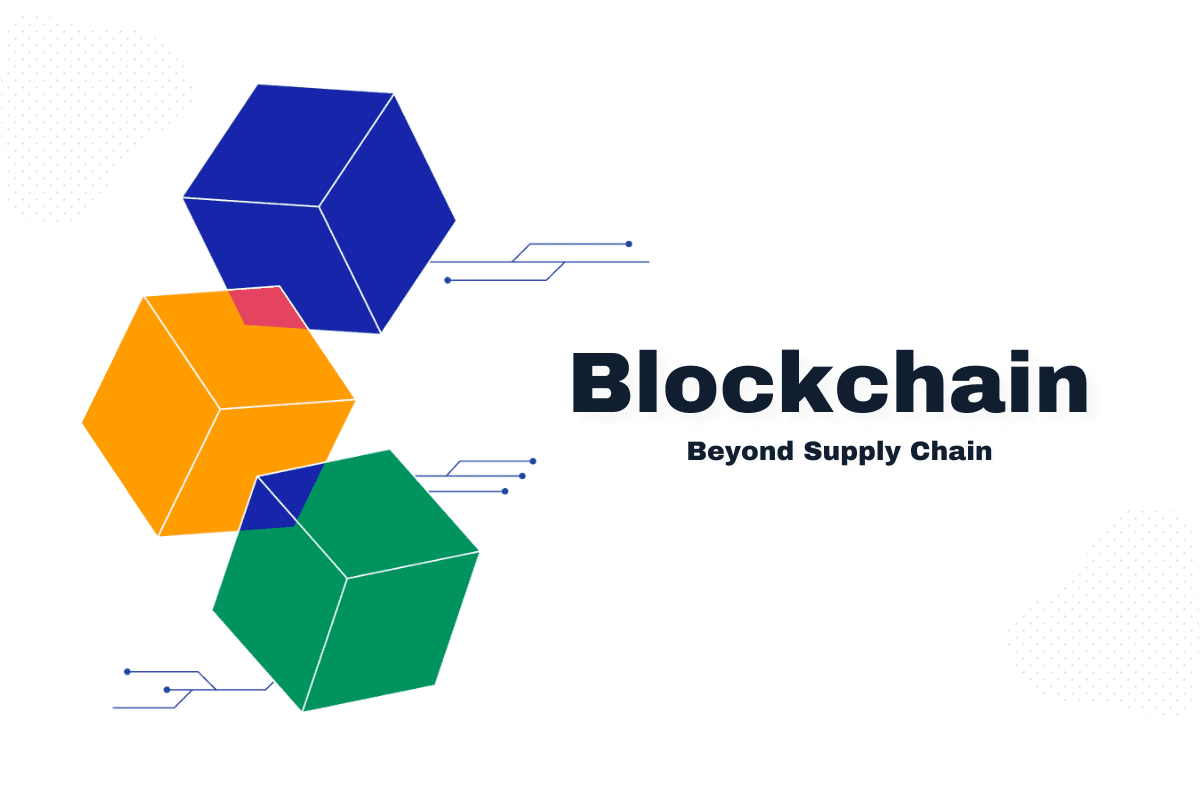Introduction:
As the world witnesses an era of rapid technological progress, certain innovations have emerged that hold the potential to revolutionize conventional business practices. Among these groundbreaking technologies, blockchain stands out as a catalyst for transformation. By leveraging its unique characteristics of transparency, immutability, and decentralized control, blockchain technology presents opportunities to enhance trust, streamline processes, and foster collaboration in various industries.
In this article, we will explore the immense potential of blockchain beyond its association with supply chain management and automation. We will delve into blockchain’s distinctive benefits and real-world applications that can reshape the business landscape and drive innovation. By gaining a deeper understanding of blockchain’s capabilities, businesses can unlock new possibilities, optimize operations, and thrive in an increasingly competitive and interconnected global marketplace. Join us as we embark on a journey to uncover the true potential of blockchain technology.
I. Revolutionizing Data Security and Privacy
1.1 Immutable Ledger for Enhanced Data Integrity: Blockchain’s ability to create an immutable ledger ensures the integrity and security of stored data. By decentralizing control and eliminating single points of failure, blockchain minimizes the risk of data breaches and unauthorized access. This enhanced data security empowers businesses to protect sensitive information and build trust with customers and partners.
1.2 Transparent and Auditable Transactions: Blockchain’s transparent nature allows for the visibility of all recorded transactions. This transparency enhances trust and accountability, as stakeholders can easily trace and verify the authenticity of transactions. Additionally, the decentralized nature of blockchain eliminates the need for extensive audits, streamlining compliance efforts and reducing costs.
II. Reinventing Digital Identity Management
2.1 Self-Sovereign Identity: Blockchain technology enables individuals to have greater control over their digital identities through self-sovereign identity (SSI). SSI allows users to securely own and manage their identity information on the blockchain, reducing reliance on centralized identity providers. This decentralized approach enhances privacy, minimizes identity theft risk, and enables seamless and trusted digital interactions.
2.2 Trustless Identity Verification: Blockchain facilitates trustless identity verification by enabling the verification of credentials without relying on third-party intermediaries. Smart contracts and cryptographic techniques can ensure that only verified and trustworthy individuals or entities can participate in specific transactions or access certain resources. This streamlined identity verification process enhances security, reduces fraud, and simplifies complex identity management systems.
III. Facilitating Peer-to-Peer Transactions
3.1 Decentralized Payments and Remittances: Blockchain technology enables secure and efficient peer-to-peer transactions without the need for intermediaries. Cryptocurrencies and digital tokens built on blockchain infrastructure allow for instant, low-cost cross-border payments and remittances. By removing intermediaries, blockchain promotes financial inclusivity, reduces transaction fees, and accelerates transaction settlement.
3.2 Enabling Tokenized Assets and Digital Ownership: Blockchain facilitates the tokenization of physical and digital assets, transforming them into tradable digital representations. These tokenized assets can be easily transferred, traded, and tracked on the blockchain. This innovation opens up new opportunities for fractional ownership, enhances liquidity, and simplifies complex ownership structures across various industries.
IV. Empowering Decentralized Applications (DApps)
4.1 Smart Contracts for Trustworthy Automation: Blockchain’s smart contracts enable the execution of predefined actions once specific conditions are met. These self-executing contracts automate processes, eliminate the need for intermediaries, and ensure trustworthiness through code-based execution. By leveraging smart contracts, businesses can streamline agreements, reduce costs, and enhance the efficiency of various operations.
4.2 Building Decentralized Ecosystems: Blockchain technology provides a foundation for the development of decentralized applications (DApps). These DApps operate on peer-to-peer networks, enabling direct interactions and eliminating centralized control. By embracing decentralized ecosystems, businesses can foster innovation, promote collaboration, and create new value propositions for customers.
Conclusion:
Beyond its association with supply chain management and automation, blockchain technology holds vast potential for reshaping the business landscape. By leveraging its attributes of transparency, security, and decentralization, blockchain can revolutionize data security, digital identity management, peer-to-peer transactions, and the development of decentralized applications. As businesses embrace blockchain technology, they can unlock new possibilities, enhance trust, and optimize their operations in an increasingly interconnected and dynamic world. By staying ahead of the curve and embracing blockchain’s transformative power, organizations can position themselves for success and drive innovation in the years to come.




